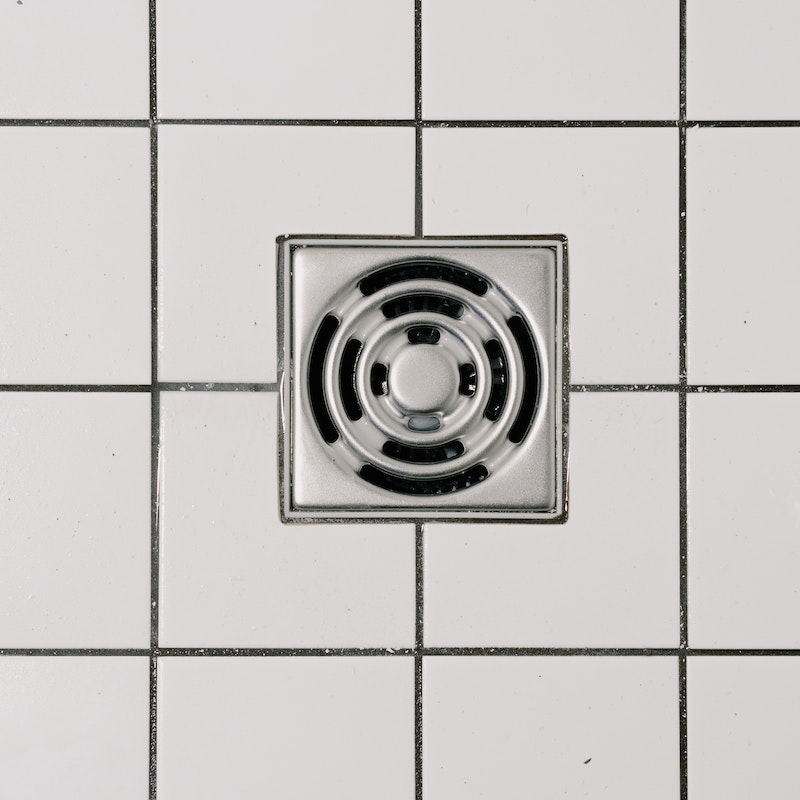What Causes Blocked Drains?
Blocked drains can be a homeowner’s worst nightmare; manifesting as slow draining water, unpleasant odours, or even backups, such disruptions not only pose a nuisance but can also hint at more severe underlying issues. The key to effectively addressing and preventing blockages lies in understanding their root causes.
While some reasons are common culprits, a range of factors, both internal and external, can contribute to a drain’s obstruction. Let’s take a look at some of the most common reasons behind this pesky plumbing predicament, and what you can do about it.
Common Reasons for Blocked Drains
Hair and Soap Scum Buildup
One of the leading causes of blockages, especially in bathrooms, is the accumulation of hair and soap scum. As strands of hair wash down the drain, they can entangle with soap residues, forming clumps that trap other debris. Over time, these clumps can become sizable obstructions, restricting water flow and leading to blockages.
Food Waste and Grease Accumulation
Kitchen sinks are often victims of food waste and grease. While it might seem harmless to wash down small food particles, they can accumulate, especially when combined with congealed fats and oils. This thick, sticky mixture adheres to the walls of pipes, reducing their diameter and, in many cases, leading to a complete blockage.
Foreign Objects and Debris
Whether it’s children’s toys, sanitary products, or accidental items like jewellery, foreign objects can easily find their way down drains, causing immediate obstructions. Additionally, general debris, such as leaves and plants, can also accumulate in outdoor drains, leading to blockages.
Tree Root Infiltration
A silent but potent threat, tree roots can infiltrate drain pipes in search of water, especially during drier conditions. As these roots grow and expand within the pipes, they not only obstruct the flow but can also cause cracks and structural damage.
Mineral Deposits and Scale
In areas with hard water, mineral deposits can form within pipes. These deposits, commonly referred to as scale, can accumulate over time, reducing the pipe’s diameter and leading to blockages. Moreover, they can also corrode and damage the pipework.
While these are some of the intrinsic factors that can cause a blocked drain in London, several external elements can exacerbate or even initiate drain issues. Being aware of these can significantly aid in prevention and timely intervention.
External Factors Affecting Drain Blockages
Weather and Seasonal Changes
The whims of the weather can also play a significant role in the state of our drains; heavy rainfall, for instance, can inundate drainage systems with more water than they can handle, especially if they’re already partially blocked. This can lead to overflows and backups. Additionally, during autumn, fallen leaves can contribute to outdoor drain blockages. Conversely, dry seasons can result in cracked pipes, allowing for ingress of soil and debris.
Soil Shifting and Settlement
Our homes, and by extension our plumbing systems, sit atop layers of soil that are in a constant state of subtle movement. Factors like soil erosion, ground shaking (from minor seismic activities or nearby construction), or even long-term settlement can cause pipes to misalign, buckle, or break. This misalignment can act as a site for debris collection, leading to blockages. Furthermore, cracked or fractured pipes from ground movement can become entry points for roots or soil, exacerbating the blockage issues.
Poor Drainage System Design
A well-designed drainage system is crucial to ensure the free flow of waste and wate; in some instances, the layout of the drainage system, its gradient, or even the diameter of the pipes used can be less than optimal. Inadequate slopes can cause water to pool, and narrow pipes might clog easily.
Conversely, pipes with too steep a gradient can result in water flowing too fast, leaving behind solids that might then accumulate and cause blockages.
Understanding both internal culprits and external factors is the foundation for keeping our drainage systems functioning optimally. However, knowledge alone isn’t enough; adopting proactive preventative measures can be the difference between smooth flowing drains and recurrent blockages.
Also Read: Why You Should Never Ignore A Blocked Drain?
Preventative Measures
Maintaining free-flowing drains is not only about reactive measures but also adopting proactive strategies to avoid blockages in the first place.
Regular Cleaning
One of the simplest methods to keep blockages at bay is regular cleaning; flushing sinks and showers with boiling water once a week can help dissolve minor obstructions and clear soap scum. For kitchen drains, a mixture of vinegar and baking soda can break down grease and food particles.
Drain Guards and Strainers
Installing drain guards or strainers in sinks and shower drains can effectively trap hair, food waste, and other large debris, preventing them from going down the drain. It’s crucial, however, to clean these guards regularly to ensure they don’t become blockage sites themselves.
Avoid Pouring Grease Down the Sink
While it might seem convenient, pouring oils and fats down the sink can be detrimental to your pipes. Instead, allow them to cool and solidify, then discard them in the bin.
Regular Inspection of Outdoor Drains
Outdoor drains can become blocked with leaves, twigs, and other garden debris, especially during the autumn months. Making it a habit to inspect and clean these drains periodically can prevent larger blockages.
When to Seek Professional Help
While many blockages can be addressed with DIY methods, there are times when the expertise of a professional plumber is invaluable.
Persistent Blockages
If a blockage reoccurs shortly after being cleared or doesn’t clear at all with home remedies, it’s an indication of a deeper issue that requires professional attention.
Water Backing Up
When water starts backing up in sinks, toilets, or bathtubs, it’s a sign that the blockage is severe and might be located deep within the drainage system.
Foul Odours
Persistent unpleasant smells emanating from drains can indicate stagnant water or a build-up of waste, signalling a blockage.
Visible Damage
Any noticeable damage to pipes, such as cracks, leaks, or misalignment, should be addressed by a professional immediately, as these can lead to more severe issues down the line.
The Bottom Line
Ultimately, blocked drains are a common issue faced by homeowners, but with the right knowledge and preventive measures, they can be kept to a minimum. And when prevention falls short, seeking professional intervention in a timely manner can protect your home and ensure your drainage system remains in top condition.
Read Next:

